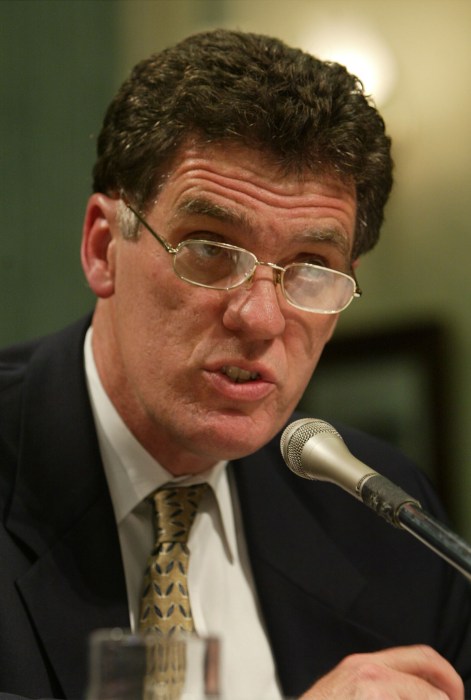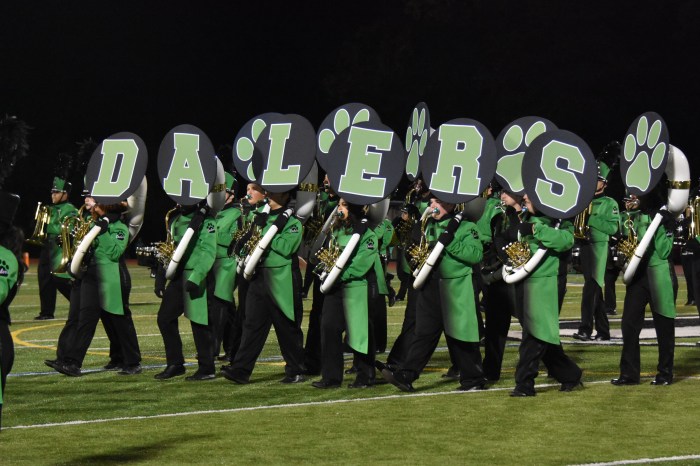Bethpage Water District officials recently filed a federal lawsuit against Northrop Grumman Corp., claiming the company’s facilities caused “irreparable harm” by creating a toxic plume that has contaminated the groundwater, costing the district millions of dollars and threatening more than 33,000 customers in Bethpage, Old Bethpage, Farmingdale, Levittown and Plainview.
According to the lawsuit, the district is demanding a jury trial to determine whether Grumman owes compensation for the costs of monitoring contaminants, operations, maintenance, treatment upgrades, and equipment required to comply with state and federal safe drinking water law; or whether Grumman would bear the expense of securing an alternative source of clean drinking water.
“Northrop Grumman recklessly disregarded the health and welfare of the Bethpage community,” said William J. Ellinger, chairman of the Bethpage Water District Board of Commissioners. “We are left with no other choice… Time and time again, Northrop Grumman has refused to do the right thing in assisting the residents of Bethpage in cleaning up a mess they created. We must hold them accountable.”
Since the 1970s, Northrop Grumman and the United States Navy have received the brunt of the blame for the toxic groundwater plume, which has grown significantly over the years.
There is evidence that three well sites in Bethpage have already been affected and that groundwater toxicity is a major concern. Contaminated groundwater has migrated from the Grumman site to pollute other wells.
According to the water district, the contamination is impacting a South Farmingdale well site, a Long Island American Water well site, and is extremely close to a well in Massapequa, south of the Southern State Parkway.
To date, the Bethpage Water District has already spent over $20 million to clean the contaminated groundwater under former manufacturing sites so that it is safe to drink. After reaching a $2.3 million agreement for upgrades at one of its plants, the district has been working with the U.S. Navy to address local needs. Meanwhile, Grumman has done little to acknowledge its role and remediate the plume.
“Northrop Grumman has refused to work with the district,” concluded John R. Sullivan, treasurer of the water district board. “They have denied us access to test wells. They have refused to pay for treatment. They caused this problem and they should be held accountable for cleaning it up.”
At present, there are eight production wells throughout the district, with a ninth currently under construction. There is evidence of groundwater contamination from the Grumman plume at the source of five out of the nine.
In order to remove all plume contaminants from the groundwater before it is delivered to residents, the district built advanced treatment systems at three of the contaminated sites.
For residents receiving water from the Plainview Water District, Chairman Joel Kessler stressed that Plainview-Old Bethpage’s wells and operating facilities are in no way in danger of being impacted by the Grumman plume.
“The District routinely monitors Plainview-Old Bethpage’s water supply for more than 150 separate parameters, and the district’s water supply undergoes rigorous testing that continues to meet or exceed county, state and federal government guidelines,” said Kessler.
Rather than continuing to purify the water from existing wells, officials in the Bethpage Water District recently decided that it would be more cost-effective to create new sources of water outside of the plume, including the well under construction at Bethpage State Park.
The new well will pump up to nearly three million gallons of water per day and is anticipated to be complete and operational by next summer.
Water district officials say they also plan to shut down some of the existing wells, or turn them over to the U.S. Navy or Grumman to remediate once these new sources are operational.
“The residents of Bethpage deserve better,” added Gary S. Bretton, secretary of the water board. “For more than 20 years, the taxpayers have unfairly shouldered the burden. If Northrop Grumman won’t do the right thing, then we will force them to do so.”
Despite the contamination, water district officials are quick to point out that the water is treated and purified before being delivered, and is safe to drink.






























